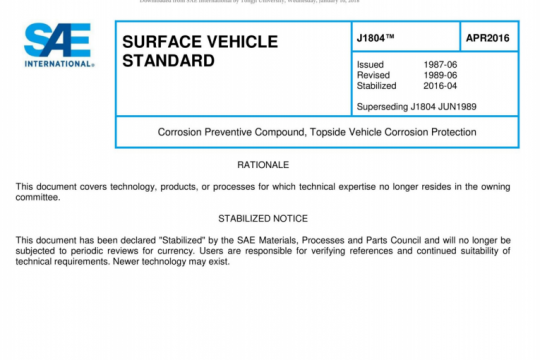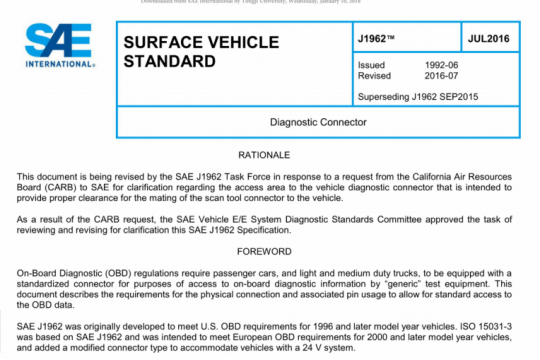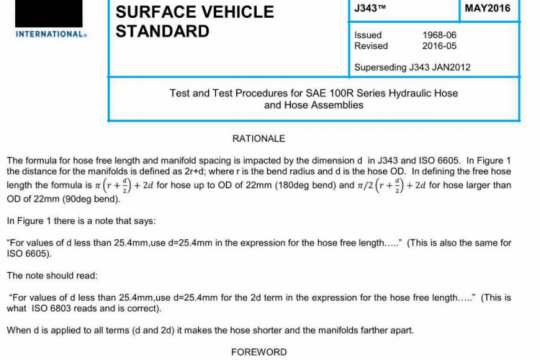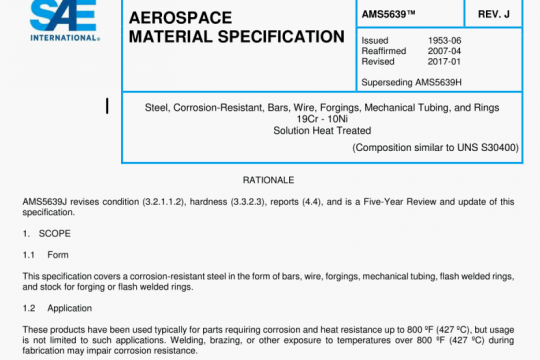SAE J2340:2017 pdf free
SAE J2340:2017 pdf free.Categorization and Properties of Dent Resistant, High Strength, and Ultra High Strength Automotive Sheet Steel
Although dent-resistant steels are not specified by chemistry, the following is provided for information purposes only. Both non-bake-hardenable and bake-hardenable dent resistant steels can be based on conventional low carbon steel (0.02 to 0.08% C), steel vacuum-degassed to very low carbon levels (<0.02% C), or interstitial-free (IF) steel. IF steel is vacuum degassed to ultra-low carbon levels (<0.01% C) and then any carbon remaining in solution is removed by adding titanium, niobium (columbium), or vanadium to form carbide precipitates. Solid solution strengthening elements such as phosphorous, manganese, or silicon may also be added to increase the as-received strength while not significantly reducing the material’s work hardenability. A material’s bake hardenability depends upon the amount of carbon remaining in solution, which is controlled through the steel chemistry and thermomechanical processing.
In this document, classification is based on minimum yield strength of the steel sheet and the strengthening that occurs during forming and paint baking. Classification of dent resistant steel is not based on chemistry. TYPES AND MECHANICAL PROPERTY REQUIREMENTS- -Mechanical property requirements of dent resistant cold-reduced uncoated and coated sheet steel grades are based on the minimum values of the following: As received yield strength (180, 210, 250, and 280 MPa), n value, tensile strength and the yield strength afterstrain (for non-bake-hardenable grades ) or strain and bake (for bake-hardenable grades). These are the only mechanical requirements of this document for dent resistant cold-reduced uncoated and coated sheet steel grades (see Table 3). Typical mechanical properties of dent resistant cold-reduced uncoated and coated sheet steel grades are shown in Table A1 (“A” designates the Appendix).
Type B – This is a bake-hardenable dent resistant steel in which increase in yield strength due to work hardening results from strain imparted during forming and an additional strengthening increment that occurs during the paint-baking process. For the purposes of this document, bake-hardenable dent resistant steels are defined as those products which possess a“bake hardening index” (BH) (as shown in Figure A1). This is an increase in yield strength of at least 30 MPa in upper yield strength or 25 MPa based on lower yield point (longitudinal direction) after a 2% tensile strain and baking at 175 °C for 30 min (representing the paint-baking process). The total hardening response is the sum of the SHI and the BHI.SAE J2340 pdf free download.




